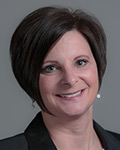Play Defense and Offense to Win the Medical Liability Game

This is the final instalment of a three-part series on changes in the Wisconsin MPL insurance market.
By Shawna Bertalot, CIC, ACI – WisMed Assure President
Three of every four primary care physicians will be sued by a patient during the course of their career. The numbers are even worse for specialties.
Which is why physicians as a whole are not willing to take the chance they will be among the lucky few who never get sued. To guard against the financial impact of a law suit, they purchase Medical Professional Liability (MPL) insurance. But, as Wisconsin physicians begin to experience rising MPL premiums along with greater underwriting scrutiny, the question becomes, “How can I get the coverage I need and avoid paying too much
Term Life Insurance

By Dave Serena
“How much can I get for how little?”
This is the usual question from a potential buyer of “Term” Life insurance.
But for our Residents, Fellows, and young Physicians who want to protect their life and their family, it’s an incomplete question.
The better question is, “How can I inexpensively protect my family from bad consequences while we buy time for our assets to grow to a point where we won’t need Life Insurance anymore?”
Dave Serena has been an Insurance Advisor with Wisconsin Medical Society Insurance Services since 1995. Working exclusively with Physicians – he has more than 800 active clients – Mr. Serena provides guidance for income and asset protection. He is dedicated to working with Residents, Fellows, and practicing Physicians and their families. Mr. Serena is a member of the National Association of Life Underwriters and the National Association of Insurance and Financial Advisors. He is the recipient of the National Association of Life Unerwriters’ prestigious National Quality Award.
Physician Wellness Matters
New course battles financial stress and physician burnout
by Christopher Rufus Sweeny
The survey says… wait, that’s wrong. Start again: 42 percent of all surveyed physicians say that they are burned out. And that number is steadily rising.
My research shows that financial anxiety is one of the primary drivers of physician depression, burnout, and suicide. When asked why, physicians say it’s because of their job. But, when asked what would reduce burnout, their first answer is increased compensation to avoid financial stress.
But, think about this: getting a higher salary is often not something you can directly control. On the other hand, you do have direct control of how you manage your salary. You can control what you have.
